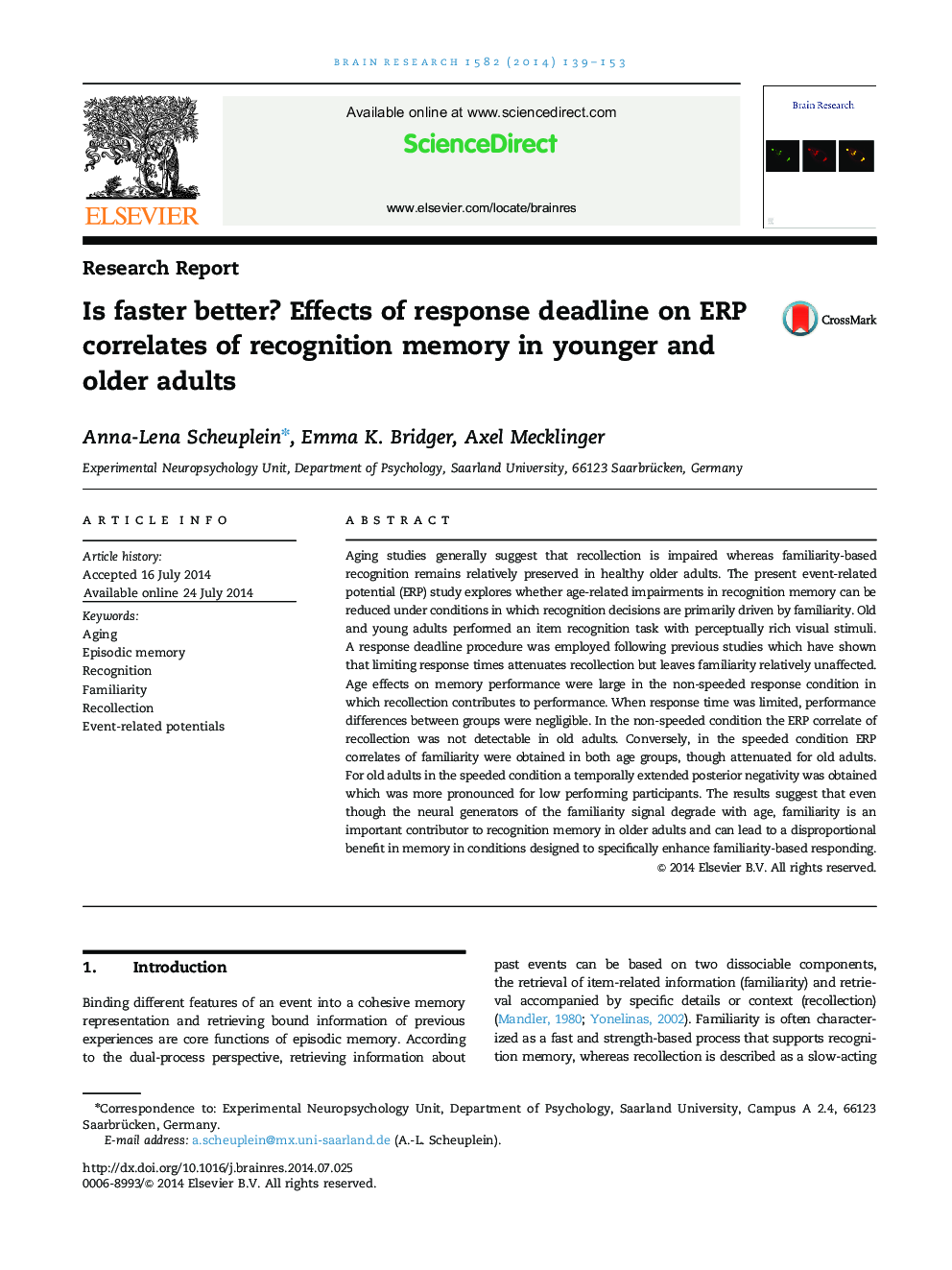| Article ID | Journal | Published Year | Pages | File Type |
|---|---|---|---|---|
| 4324103 | Brain Research | 2014 | 15 Pages |
•Familiarity is thought to be disproportionately preserved in healthy aging.•Speeding responding reduces the contribution of recollection to recognition.•Young and old adults complete recognition task with non- and speeded conditions.•Absent parietal and reduced frontal old/new effect in elderly in both conditions.•Reduced age-related impairments when recognition depends primarily on familiarity.
Aging studies generally suggest that recollection is impaired whereas familiarity-based recognition remains relatively preserved in healthy older adults. The present event-related potential (ERP) study explores whether age-related impairments in recognition memory can be reduced under conditions in which recognition decisions are primarily driven by familiarity. Old and young adults performed an item recognition task with perceptually rich visual stimuli. A response deadline procedure was employed following previous studies which have shown that limiting response times attenuates recollection but leaves familiarity relatively unaffected. Age effects on memory performance were large in the non-speeded response condition in which recollection contributes to performance. When response time was limited, performance differences between groups were negligible. In the non-speeded condition the ERP correlate of recollection was not detectable in old adults. Conversely, in the speeded condition ERP correlates of familiarity were obtained in both age groups, though attenuated for old adults. For old adults in the speeded condition a temporally extended posterior negativity was obtained which was more pronounced for low performing participants. The results suggest that even though the neural generators of the familiarity signal degrade with age, familiarity is an important contributor to recognition memory in older adults and can lead to a disproportional benefit in memory in conditions designed to specifically enhance familiarity-based responding.
